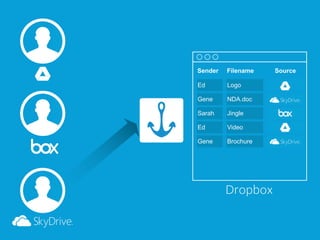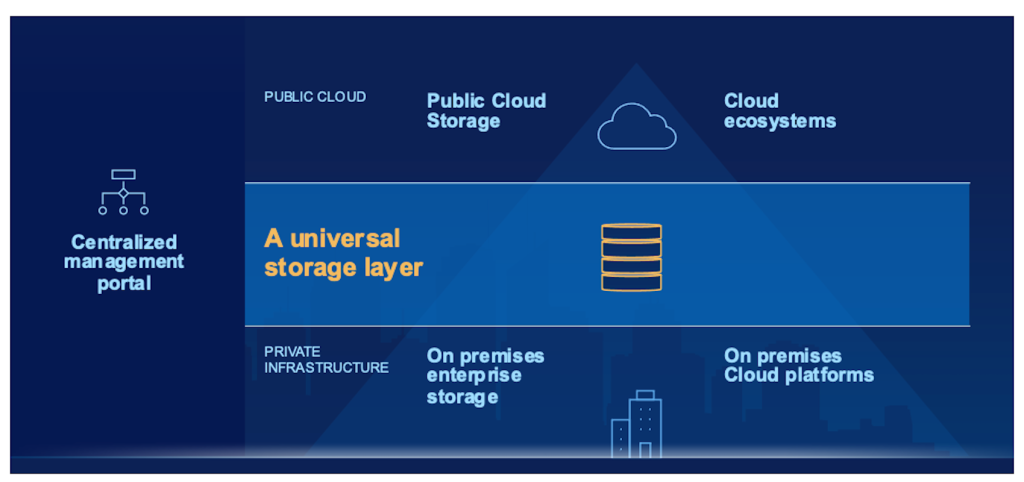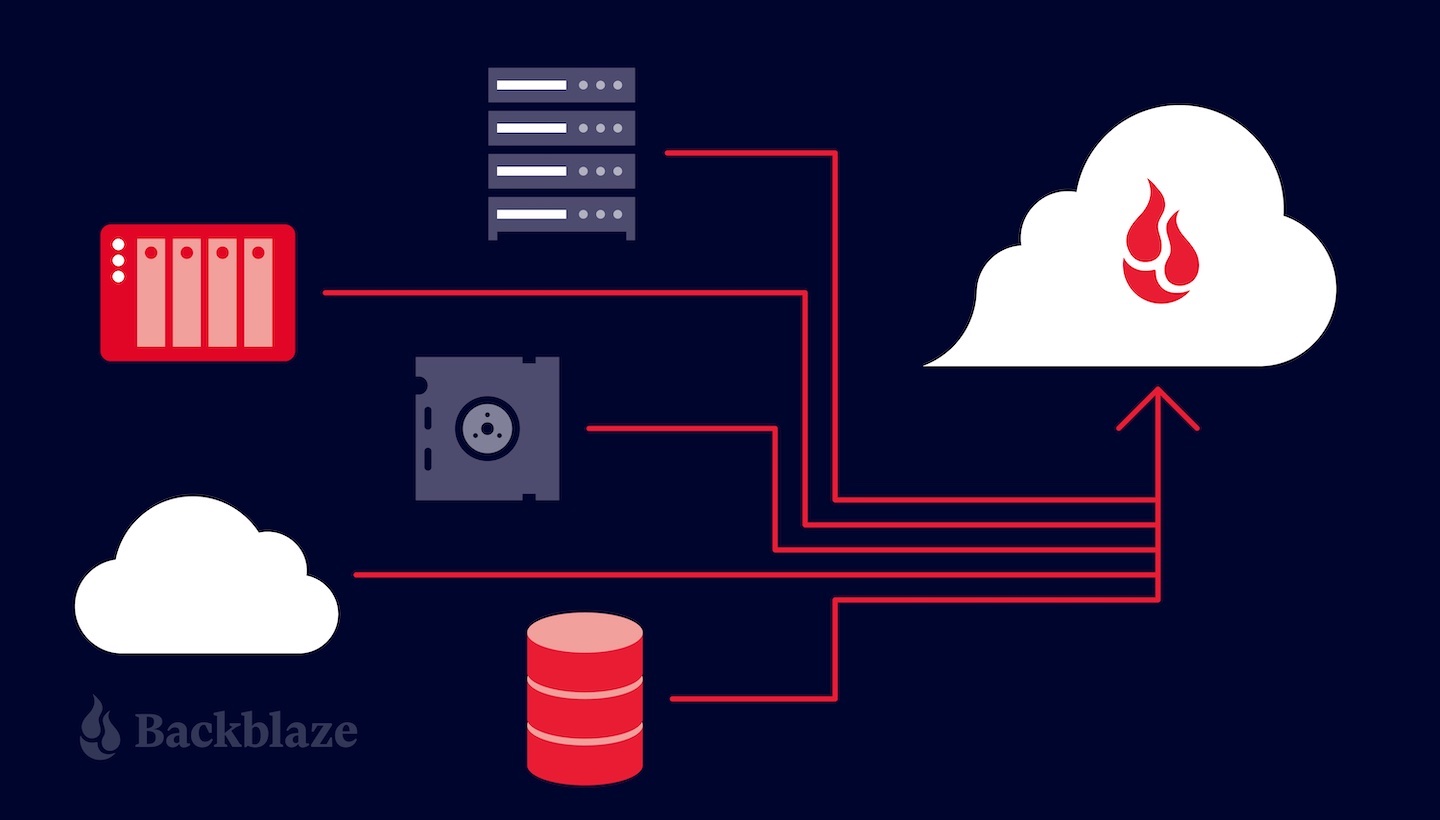Discovering the Role of Universal Cloud Storage Space Providers in Data Protection and Compliance
In today's electronic landscape, the application of universal cloud storage services has ended up being paramount in resolving information protection and conformity requirements for organizations throughout various markets. As companies progressively depend on cloud storage options to handle and safeguard their information, exploring the intricate function these solutions play in guaranteeing information safety and security and conference regulative criteria is vital. From mitigating threats to enhancing data ease of access, cloud storage solutions use a complex technique to guarding delicate info. The evolving nature of cyber dangers and governing frameworks presents a dynamic challenge that organizations should browse successfully to promote their information defense and compliance mandates. By diving into the subtleties of global cloud storage space solutions, a more clear understanding of their influence on information safety and regulatory conformity arises, losing light on the intricacies and possibilities that lie in advance.
Importance of Cloud Storage Space Solutions
Cloud storage services play a crucial duty in modern information management techniques due to their scalability, ease of access, and cost-effectiveness. Scalability is a vital advantage of cloud storage space, allowing companies to easily adjust their storage space capability as information demands change.
Ease of access is another crucial aspect of cloud storage space solutions. By keeping data in the cloud, individuals can access their information from anywhere with a net connection, promoting partnership and remote work. This accessibility promotes functional efficiency and makes it possible for seamless sharing of information across teams and places.
In addition, numerous cloud storage space companies supply pay-as-you-go prices versions, allowing companies to pay only for the storage ability they use. Generally, the importance of cloud storage solutions lies in their capacity to improve information management procedures, enhance availability, and lower functional costs.
Information Defense Techniques With Cloud
By securing information prior to it is published to the cloud and keeping control over the security secrets, companies can stop unauthorized gain access to and reduce the risk of data breaches. Multi-factor authentication, strong password policies, and regular gain access to evaluations are some strategies that can enhance information security in cloud storage space solutions.
Regularly backing up information is one more important element of data security in the cloud. By producing backups saved in separate locations, organizations can make sure information schedule and resilience in situation of unforeseen occasions such as cyber-attacks, equipment failings, or all-natural calamities. Furthermore, conducting regular security audits and assessments can assist recognize susceptabilities and guarantee conformity with information security laws. By incorporating file encryption, gain access to controls, backups, and routine security analyses, companies can establish a robust information protection strategy in cloud environments.
Conformity Factors To Consider in Cloud Storage
Provided the critical nature of data security strategies in cloud atmospheres, companies should additionally prioritize compliance factors to consider when it involves storing information in the cloud. Conformity needs vary across markets and areas, making it important for companies to recognize and stick to the appropriate laws. When making use of cloud storage services, businesses need to ensure that the supplier abides by industry-specific standards such as GDPR, HIPAA, or PCI DSS, depending upon the sort of information being stored. In addition, companies should take into consideration information residency requirements to guarantee that data is kept in certified locations.

Challenges and Solutions in Cloud Safety And Security
Guaranteeing durable safety and security steps in cloud settings provides a complex difficulty for companies today. One of the primary difficulties in cloud protection is information breaches. Malicious actors regularly target cloud systems to obtain unauthorized access to sensitive details. To mitigate this danger, companies must execute strong security procedures, gain access to controls, and normal security audits. An additional challenge is the common responsibility design in cloud computing, where both the cloud provider and the client are in charge of different aspects of safety and security. This can cause complication and gaps in safety and security insurance coverage otherwise clearly defined. Organizations has to clearly describe duties and duties to ensure comprehensive security steps remain in area.

Future Patterns in Cloud Information Protection
The advancing landscape of cloud data security is marked by a growing focus on proactive protection techniques and flexible safety steps (universal cloud storage). As technology advances and cyber hazards come to be much more sophisticated, companies are significantly concentrating on predictive analytics, expert system, and device discovering to boost their data defense abilities in the cloud
Among the future trends in cloud information defense is the combination of automation and orchestration devices to improve protection operations and feedback processes. By automating regular jobs such as risk discovery, incident reaction, and patch monitoring, organizations can boost their overall protection posture and much better shield their data in the cloud.
Furthermore, the fostering of a zero-trust protection model is gaining grip in the realm of cloud information security. This approach thinks that hazards can be both outside and inner, requiring continuous authentication and permission for all individuals and gadgets accessing the cloud setting. By implementing a zero-trust framework, companies can lower the risk of data breaches and unauthorized access to sensitive details kept in the cloud.
Conclusion
